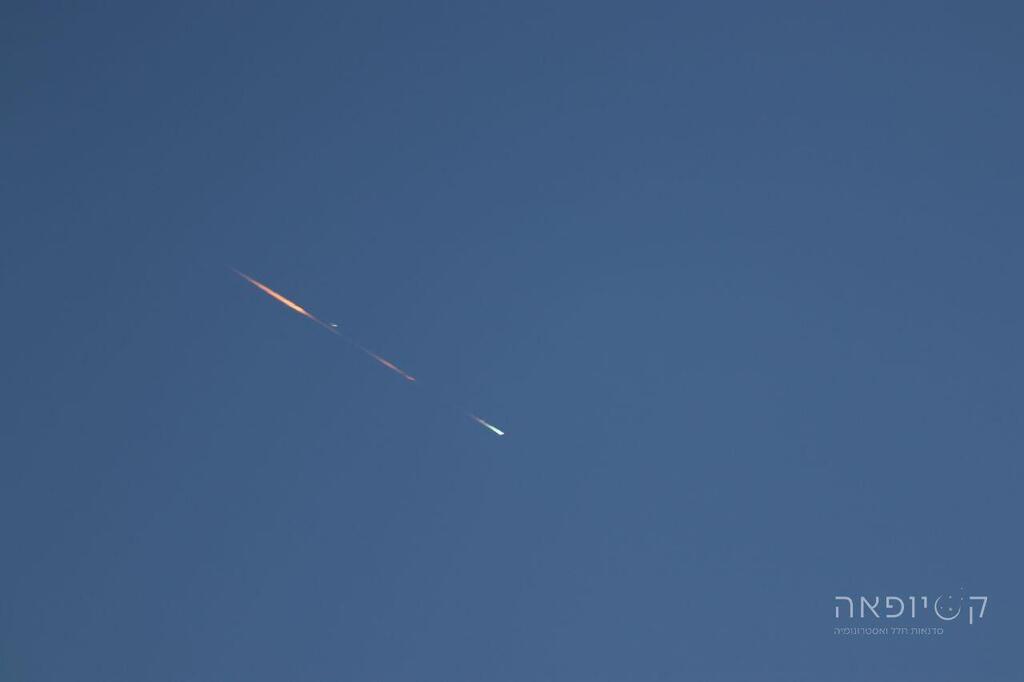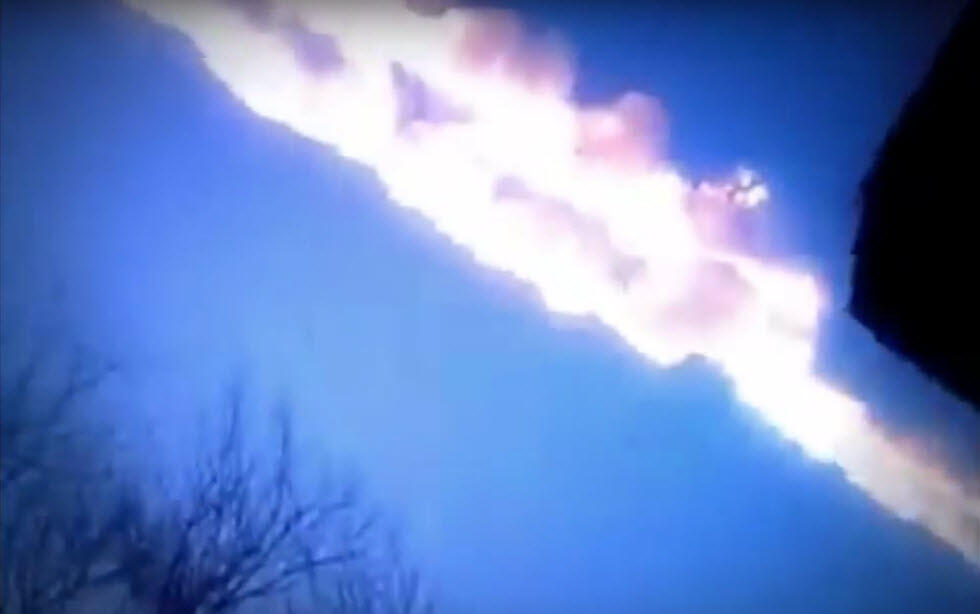Bolide seen over skies of Ramat Gan
(Video: Shlomi Eini)
Israel was rocked by a loud explosion on Saturday afternoon, which is believed to have been caused by a meteor bursting over the country's skies, according to the Israeli Astronomical Association.
Other stories:
Dozens of online users from Karmiel in the north to Rishon Lezion in central Israel reported hearing the unusual blast.
"I was walking my dog in Tel Aviv, near the Beit Ariela library and I heard a loud explosion. I immediately checked my phone to see if there was any news on the subject," wrote Eden from Tel Aviv.
"We heard a muffled and distant explosion in Karmiel. My dog got a little scared," wrote a user named Ami from the Galilee city.
Another user who resides near Ben Gurion Airport said that he taught that the blast was a sonic boom.
The Israeli Astronomical Association made a reassuring Facebook post addressing public concerns following the loud explosion.
"We received several reports of a bolide (a particularly bright meteor) that was observed a short time ago in the central region of the country in broad daylight! The bolide was observed from the center of the country at around 17:20 heading northeast, and it is very possible that it was seen from other regions of Israel as well.”
In a response to a Ynet request for comment, the Israeli Astronomical Association said that "Meteors (shooting stars), are celestial phenomena caused by small rocks called meteoroids that move through space. In areas with dark skies, like deserts, several meteors can be visible per hour each night. Occasionally, some meteors can be bright enough to be seen from inhabited areas, and in rare cases, they can even be visible in daylight.
A bolide seen in broad daylight is a not very rare event. Once every few weeks there is a report like this from around the world, and to the best of my knowledge we have not seen such a bolide in Israel for many years."
200,000 tons every year
While it may seem that events involving asteroid impacts on Earth are rare, the reality is that our planet is impacted by about 200,000 tons of asteroids, meteors, and other space debris every year, which are remnants from comets also moving in the solar system.
Over the past decade, several such occurrences have also caused damage and injuries on the ground.
On February 15, 2013, a high-altitude explosion was witnessed south of Puerto Rico, was attributed to a Tunguska-like event caused by a celestial body the size of a family car. Even though the object was relatively small, the energy released by the explosion was equivalent to one-third of the atomic bomb that was dropped on Hiroshima at the end of World War II.
A similar but more significant event occurred in February 2013. A meteorite with an estimated diameter of 17 meters entered the Earth's atmosphere as a fireball at a speed of over 50,000 km/h (45 times the speed of sound), and exploded at an altitude between 30 and 50 kilometers above the southern Ural Mountains region of Russia and near the city of Chelyabinsk. The damage was extensive - 1,500 injured mainly from broken glass windows that were shattered by the shock wave and about 3,000 buildings in six cities were damaged in the area due to the explosion and the effects around it. Many remains and fragments were found in the nearby lake, the largest of which weighed over half a ton.
In February 2013, a meteorite estimated to be 17 meters in diameter entered the Earth's atmosphere at a speed of over 50,000 km/h, causing a fireball and exploding at an altitude of 30-50 kilometers above the southern Ural Mountains in Russia, close to the city of Chelyabinsk.
The shock wave caused extensive damage, with approximately 1,500 people injured mainly from glass windows shattered by the shock wave, and around 3,000 buildings across six cities damaged in the area. Numerous remains and fragments of the meteorite were discovered in the nearby lake, including one fragment that weighed over half a ton.
The amount of damage caused by an object entering the Earth's atmosphere depends on its size and intensity of impact. In general, any object weighing less than 100 kilograms that penetrates the atmosphere will be entirely burned up due to the friction, while any object weighing more than that will likely experience a 90% reduction in size and hit the Earth's surface.





